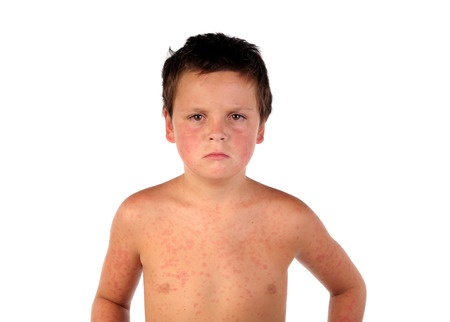Some Missouri health officials are stressing the importance of vaccination in light of a measles outbreak on the west coast.
The California Department of Health said Friday it received 49 reports of measles in the state, many in Orange County. California had only four reports of measles at the end of March 2013.
“This dramatic jump in the number of measles cases is a reminder to get fully vaccinated,” said Dr. Ron Chapman, CDPH director and state health officer. “Being fully vaccinated against measles does more than just protect the person who receives the vaccination, it also protects their family and friends, including children who may be too young to be vaccinated.”
The measles cases have been reported in eight counties, mostly in Southern California and the Bay Area.
Among these 49 cases, 11 patients had traveled outside of North or South America, including to parts of the world where outbreaks are actively occurring or where measles is widespread.
Of the patients without international travel, 30 had contact with known measles cases, three had contact with international travelers and five are under investigation to identify potential sources.
High immunization rates in California have kept preventable childhood diseases, such as measles, at record lows during the past 20 years, health officials said.
Since 2000, when measles was declared eliminated in the United States, the number of cases in California each year has ranged from four to 40 cases.
In that time, almost all measles cases in the United States have been linked to travel to parts of the world where measles still circulates.
Measles is a highly contagious viral disease that is spread through the air through a cough or a sneeze by someone who is ill with the disease, officials said.
Symptoms begin with a fever that lasts for a couple of days, followed by a cough, runny nose, red, watery eyes and rash. The rash typically appears first on the face, along the hairline, and behind the ears and then affects the rest of the body.
Infected people are usually contagious for about eight days, four days before their rash starts and four days after. Complications can include diarrhea, ear infections and pneumonia. In severe cases death can occur. Infants, pregnant women and people with impaired immune systems are more susceptible to complications from measles.
Children are recommended to get their first dose of MMR (measles, mumps and rubella) vaccine at 12 to 15 months. The second dose of MMR is usually administered before children start kindergarten at 4 to 6 years. Immunized adults do not need boosters. However, anyone born since 1957 who has not had two doses of vaccine may still be vulnerable to measles and should ask their doctor about getting immunized, especially if they are traveling overseas.
Unvaccinated Californians who are traveling outside of North or South America should receive MMR vaccine before they go. Infants who are traveling can be vaccinated as young as six months of age (though they should also have the two standard doses of MMR vaccine after their first birthday).
People getting ready to travel abroad can find helpful information about travel vaccines on the Centers for Disease Control and Prevention website.
Agencies/Press Releases/Canadajournal
 Canada Journal – News of the World Articles and videos to bring you the biggest Canadian news stories from across the country every day
Canada Journal – News of the World Articles and videos to bring you the biggest Canadian news stories from across the country every day



